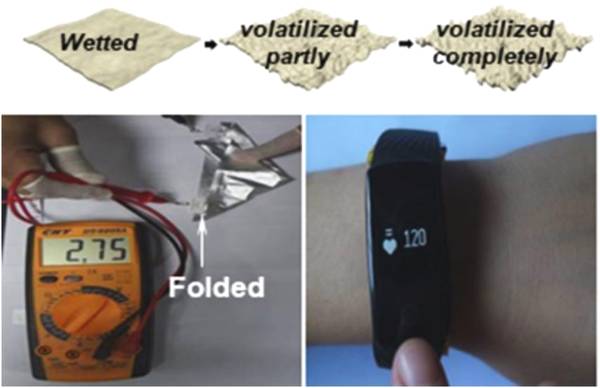Recently, the teachers and students of the Carbon Nanomaterials team at the School of Materials Science and Engineering of Jiangxi University of Science and Technology published a paper in the top international journal Advanced Energy Materials (impact factor 21.875) entitled "Engineering the Surface / interface of Horizontally Oriented Carbon Nanotube Macrofilm for Foldable Lithium-ion Battery withstanding Variable Weather ". Professor Wu Ziping of our school and Professor Xia Baoyu of Huazhong University of Science and Technology are the corresponding authors of the thesis. Jiangxi University of Science and Technology is the first unit to complete the thesis. Master students Liu Ting and Zhang Ming of our school are the co-first authors of the work.

Lithium ion batteries (LIBs) are currently the most common energy storage devices. With the rise of wearable electronic devices, the flexibility of batteries is the basis for achieving wearable devices, and flexible current collectors are the key to the flexibility of LIBs. The current collectors of LIBs are mainly copper foil and aluminum foil, which limits the deformability of the battery; in addition, the battery will fluctuate in electrochemical performance with weather changes, such as the battery even stops working in cold weather, this is a wearable electronic device A practical problem that must be faced when wearing in appearance, but it is rarely paid attention to.
This work uses paper as the substrate and achieves large-scale preparation of oriented carbon nanotube membranes (HUCNMs) through surface interface modification. The resulting HUCNMs have an area of ​​~ 1800 mm × 1000 mm and are used as LIBs positive and negative current collectors. LIBs exhibit excellent flexibility, electrochemical stability and rate performance; the single-layer full battery capacity is higher than 700 mAh and the specific capacity is 160 mAh / g, under simulated different temperature (-40 ~ 70 ℃) and low voltage conditions, the battery still maintains stable electrochemical performance, showing excellent weather resistance. In addition, the research group has recently developed a flexible cable-type battery based on carbon nanotubes, which was published in Small (impact factor 9.598, DOI: 10.1002 / smll.201800414). The resulting battery has a volume energy density of 215 mWh / cm3, which is the existing The highest value reported in the literature is more than 7 times, which shows the great application potential of carbon nanotubes in the field of flexible energy storage.
Sensor Cabinet Light,Motion Sensor Led Night Lights,Sensor Led Night Lights,Motion Sensor Cabinet Light
JIANGMEN MOSCOT OPTOELECTRONIC TECHNOLOGY CO.,LTD. , https://www.zjsensorsled.com